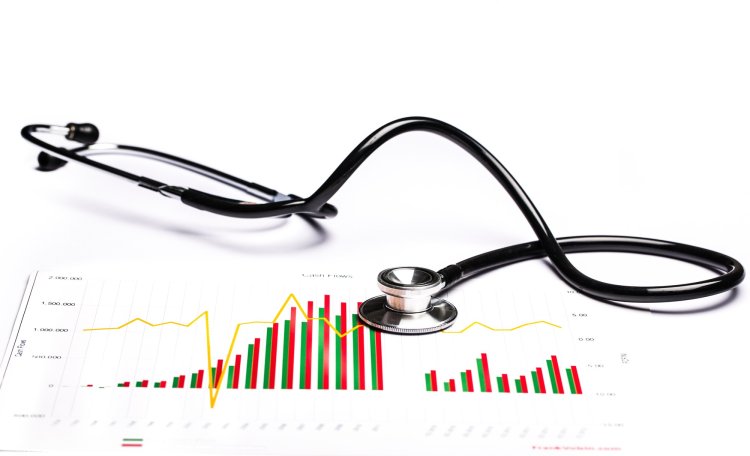Are healthcare stocks recession proof ?
Explore the question of whether healthcare stocks are recession-proof and learn about the factors that can impact their performance during economic downturns. Discover the potential benefits and risks of investing in healthcare stocks and gain insights into how to evaluate the resilience of these stocks during times of market volatility.

Healthcare stocks are stocks that represent companies operating in the healthcare industry, including pharmaceuticals, biotechnology, medical devices, hospitals, and healthcare providers. Healthcare is one of the largest and fastest-growing industries in the world, with an aging population and increasing demand for healthcare services driving growth.
Investing in healthcare stocks can be an attractive option for investors looking for long-term growth opportunities, as the industry has historically performed well over time. However, like all investments, healthcare stocks come with risks, including regulatory uncertainty, competition, and changing market dynamics.
One of the key benefits of investing in healthcare stocks is the potential for strong long-term growth. Healthcare companies can benefit from factors such as an aging population, increased demand for healthcare services, and technological advancements that drive innovation and efficiency. In addition, many healthcare companies have established brands and strong market positions, which can provide a competitive advantage.
However, healthcare stocks are not immune to market volatility, and they can be impacted by factors such as regulatory changes, patent expirations, and increasing competition. For example, changes to healthcare policy or regulations can impact the profitability of healthcare companies, while patent expirations can lead to increased competition and lower prices.
Investors looking to invest in healthcare stocks should carefully evaluate the individual companies they are considering, taking into account factors such as their financial health, competitive position, and growth prospects. It is also important to consider diversification, spreading investments across a range of healthcare companies to reduce risk.
Healthcare stocks can provide attractive long-term growth opportunities, but investors should be aware of the risks and take a careful approach to investing in this sector. With careful evaluation and a diversified approach, healthcare stocks can be a valuable addition to a well-rounded investment portfolio.
Healthcare stocks recession proof or not -
It is a common belief that healthcare stocks are recession-proof, meaning that they can perform well even during economic downturns. However, this is not entirely true, as the performance of healthcare stocks can be impacted by a variety of factors, including the severity and duration of a recession.
The best recession stocks include consumer staples, utilities and healthcare companies, all of which produce goods and services that consumers can't do without, no matter how bad the economy gets.
During a recession, consumers may reduce their healthcare spending, as they prioritize essential expenses such as food and shelter. This can impact the performance of healthcare companies that rely on consumer spending, such as medical device and pharmaceutical companies. In addition, healthcare companies that rely on government funding, such as hospitals and healthcare providers, may also be impacted by budget cuts and reduced reimbursement rates.
However, there are some factors that can make healthcare stocks more resilient during economic downturns. For example, the demand for healthcare services tends to be relatively stable, regardless of economic conditions. This is because healthcare is an essential service that people require regardless of their financial situation. Additionally, healthcare companies often have strong balance sheets and cash flows, which can help them weather a downturn.
Healthcare stocks are a defensive play that perform well during a recession. That’s because they provide products and services that are always in demand. When money is tight, people will probably give up discretionary spending, like a vacation or other expensive non-essentials, but they are not going to cancel their prescriptions or stop buying band aids, cold medicine, or other healthcare products.
Another factor that can impact the performance of healthcare stocks during a recession is government policy. During times of economic hardship, governments may increase their spending on healthcare and enact policies to support the industry. For example, in the United States, the Affordable Care Act (ACA) was passed during the 2008 financial crisis, which provided increased funding for healthcare and expanded access to insurance coverage.
In summary, healthcare stocks are not entirely recession-proof, as their performance can be impacted by a variety of factors, including consumer spending, government funding, and regulatory changes. However, the stability of demand for healthcare services and potential government support can make healthcare stocks more resilient during economic downturns than other sectors. As with any investment, it is important to carefully evaluate individual companies and consider diversification when investing in healthcare stocks.
What's Your Reaction?


















